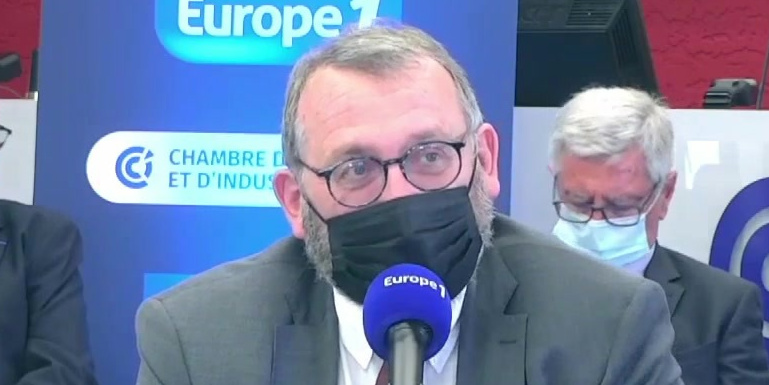Guest of "La France Bouge", Thursday on Europe 1, the Secretary of State to the Minister of Territorial Cohesion and Relations with Local Authorities, Joël Giraud, assured that "the decision has been taken and acted upon to ensure that rurality is not excluded from the development of 5G ".
INTERVIEW
Its deployment is effective in Strasbourg, Lyon, Bordeaux and recently Paris.
But when will 5G reach rural areas?
Soon, according to Joël Giraud, Secretary of State to the Minister of Territorial Cohesion and Relations with Local Authorities, in charge of Rurality.
Guest of
La France Bouge
, Thursday on Europe 1, the manager assured that 5G would be "not inaccessible, far from it".
>> Find all the shows of La France bouge from 1 p.m. to 2 p.m. on Europe 1 as well as in replay and podcast here
"That rurality is not excluded"
"5G is to transport 'large packets'", that is to say large volumes of data, poses Joël Giraud.
"It's essential here [in Aurillac, from where
La France Bouge
was live, Thursday], it's essential in small rural communities."
According to the Secretary of State, the decision has therefore "been taken and acted to ensure that rurality is not excluded from the development of 5G".
"And she won't be," he says.
Priority areas include, for example, mountain regions, which are currently poorly connected and where needs, particularly in the tourism sector, are great.
In total, "we are on a target of 25% coverage of French rural territory", according to Joël Giraud.
A "paradigm shift" in the territories
The objective is all the more important as the Covid-19 crisis made it possible to "understand that the France of the territories was no longer a problem, but on the contrary a solution", affirms the Secretary of State.
"People realized that we could live in the provinces, in more remote places, under certain conditions. You have to have a certain number of things, including digital that works properly."
And to emphasize that "96% of the territory" is already covered by 4G: "We have done more in a few years than over the previous ten years."
Behind this progression, there is "a change of paradigm", estimates Joël Giraud.
"We identify the white areas with the help of the prefectures, departments and departmental councils, we take orders at the national level, we put the money that corresponds and we require operators to come and equip. Before, it was the communities that funded, it is not the same thing after all. "

